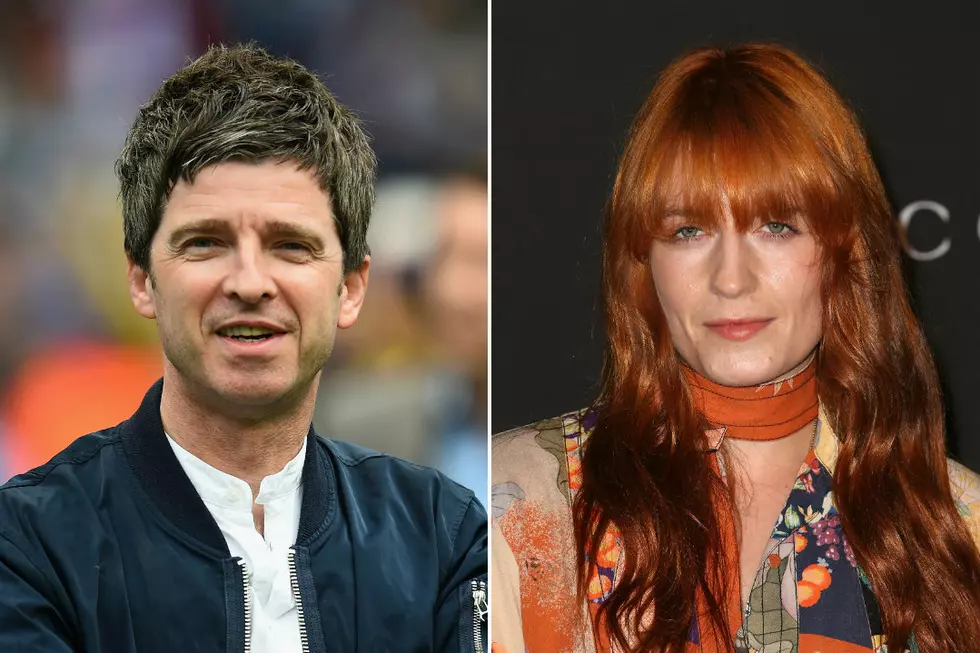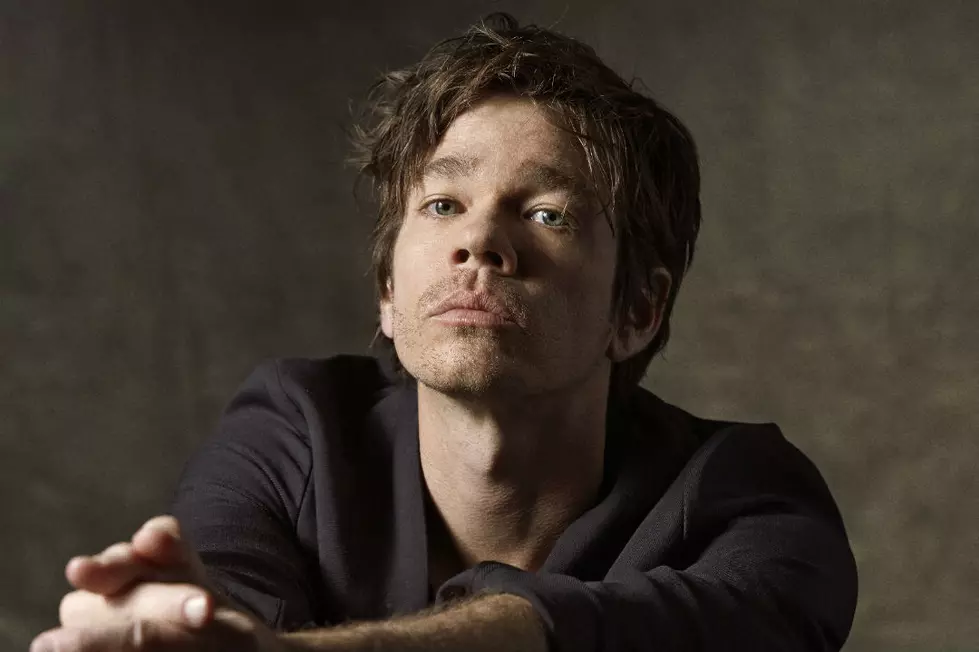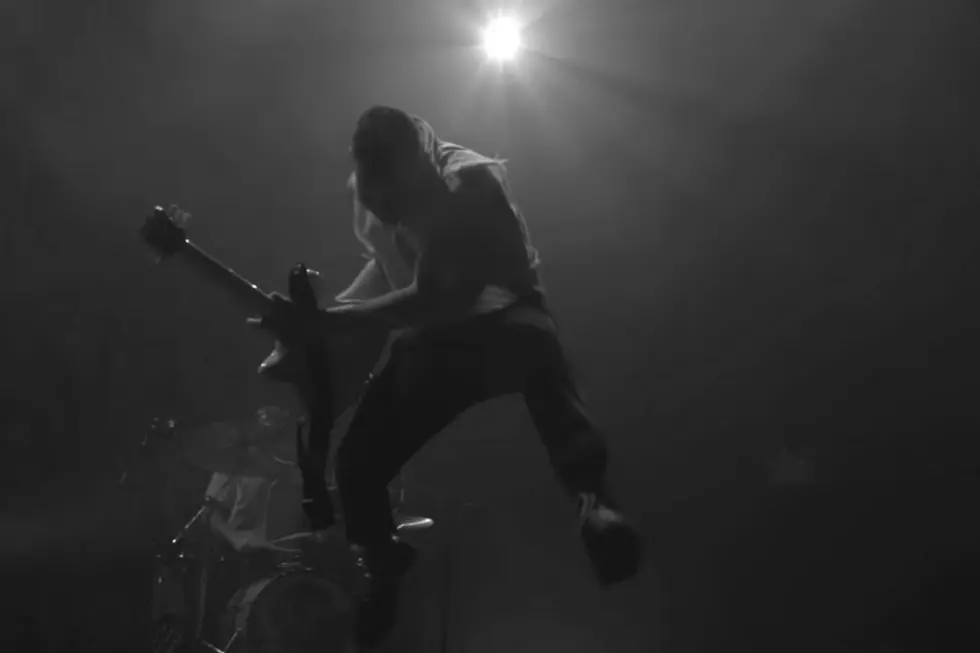
Bleachers’ Jack Antonoff Talks Artistic Pressures, Anxiety + Mental Health Awareness
Life isn't too bad for Bleachers mastermind Jack Antonoff. Their smash hit, "I Wanna Get Better," taken from their 2014 debut album Strange Desire, elevated the fun. guitarist to a bonafide rock star frontman. We even named it one of the Top 10 Songs of 2014. But the success didn't come overnight.
We had the chance to catch up with Antonoff and he opened up about that long road to success, his struggles with anxiety, not being afraid to work with pop stars and more. Check it out.
Considering the success of Strange Desire, what were your initial expectations while writing it?
I don't think about expectations in that way. The only expectations I think about are artistic ones. I like to really try to fill my head with things that I can control. It gets a little toxic to dwell on things you can't. What I can control is how great I can make these songs and how much I put into them. So artistically, my expectations were through the roof and I had to really work for that.
One of our favorite songs from the album is "Take Me Away." Since you traveled a lot while writing these songs, do you remember each location for every track?
That one I wrote at my parents' house in New Jersey. That song is a really special one because a lot of times when I write, I'll make a track and sing whatever melodies pop into my head. With that song, I just took those and started cutting them up and placed them all over the place. It's the only song on the album that's really an actual sketch of how I write. I never rewrote the lyrics, I never redid it. That's actually kind of me free-forming. And even when we play it live I usually just change it and sing whatever comes into my head.
Do you find yourself having to take a step back and keep from overworking a particular track?
All the time. It happens a lot. Part of the battle is to work really hard on something, but sometimes working really hard is taking a step back and leaving it. When I say working hard I don't mean like recording tons of tracks. Just working hard to know what's right for a song. And the only way you can know is think on a gut level.
Did each song give you an, "aha, this is it," moment when you listened to them?
Yeah. Every song has different stages of that. Like when you are first writing you're like, "Oh, that's it. I got the vibe." Then you're recording it, you start to hone in on the sound of what it's supposed to feel like... (you have) these a-ha moments of understanding what a song is.
You've made no secret about struggling with anxiety in social situations, yet we observed you seem to have no trouble interacting with fans. Have those situations become easier for you or does it still take a lot of work?
With fans it's easy because we're relating on the music and that's something very personal to me. In many ways, the conversations about anxiety or depression, they know all that. So I feel like I'm with people who understand, not people who I need to be scared of.
Sometimes it seems like mental health awareness takes a back seat to other health issues. Some are quick to dispense medication or affix a label instead of digging deeper into the root of the problem. What do you think can be done to change that in this country?
Just more information. A lot of people don't have information on these things and they're afraid of it. When you're afraid of something, you get angry about it and label it. As time goes on and more information becomes available, people understand what mental health issues are and how naturally they occur in people. I think treatment becomes easier. Even with little things like antidepressants or anti-anxiety meds, a lot of people have such a stick up their ass about it. Almost like, "Oh I'm going to beat it myself." You wouldn't say that about cancer. If you broke your leg, you wouldn't not wear a cast to beat it yourself. Mental health issues are absolutely no different. They just occur in the brain instead of in the heart or the lungs. There's definitely this 1950s mentality of "being a man" or something about beating mental health issues that I think gets smaller as time goes on, which is a great thing.
You signed a record deal when you're 18 and have been in bands for more than a decade. However, you didn't hit that crossover appeal until fun. broke out in 2012. Are you comfortable with where you're at in your career at this point?
I don't feel specifically uncomfortable, but I think that the way you come up in music is sort of always the way you are. Even with a sold out show tonight, a part of me wonders if anyone is going to come. That's just who I am as a touring artist. I've been on the road so much and seen so much at the other side of it, that I feel very grateful when one person or 100 people or 1,000 people come to the show. I kind of know how much it means to have them there.
Do you feel more pressure when you're the frontman of the group versus not having that responsibility like in fun.?
There is more pressure. It's not a bad thing. There's just literally more on your shoulders. I like it because it's more daunting therefore more rewarding.
You play a therapist in the music video for "I Wanna Get Better." We've all told that friend who keeps getting back together with his or her ex that it's a bad idea. Why do you think couples stay in toxic, unhealthy relationships when they know it's time to move on but can't?
You get defined by your relationships – your committed relationships, but also your friends and family. There's a fear of not recognizing yourself outside of those things. I think there is a weight and intensity to be in certain relationships. You grow and learn a lot about yourself, but you also do that when you're alone. It's always good to face what you're really terrified of.
Does being in a band help or hurt your relationships?
Touring and the schedule involved in that make relationships tough, but like anything you have to work for it. If you love something so much and it's super easy, then what kind of person would you be? [It would be] pretty uninspiring if you didn't suffer in some way for what you love.
Pop music doesn't seem as evil as it once was in the alt-indie world. Despite having great pop sensibility, were you hesitant to work with artists like Taylor Swift and Sara Bareilles before you knew them?
Nope. I only cared about things that I thought were interesting – not trying to fit into a scene or be this or that, pop or not pop. I'm just trying to appeal to people that think the things that I think are cool are cool. The most honest I can be is to just be myself. How could one person or one artist fit so perfectly into a scene? I think Grimes is cool, I think Taylor is cool. I think Sara Bareilles is cool, I think INXS are cool. Basically, my philosophy is I work on things I feel really passionate about. I don't let any other thoughts seep in there that would alter that.
Jay-Z and his powerful friends unveiled their plan for the Tidal music streaming service last month. Is this the next step that the industry needs to go or does the content delivery system still need an overhaul?
Streaming in general kind of seems like it needs an overhaul. I don't know enough about it to really have an intense opinion yet. But I also just think that people purchasing music is just not something that's even close to dead. Not streaming, just buying music. I think it's more alive than we all give it credit for.
Pick up Bleachers' latest full-length, Strange Desire, here -- and make sure to stay up-to-date with everything happening in their world at their official website.
More From Diffuser.fm









